By Martin Keady · December 9, 2024
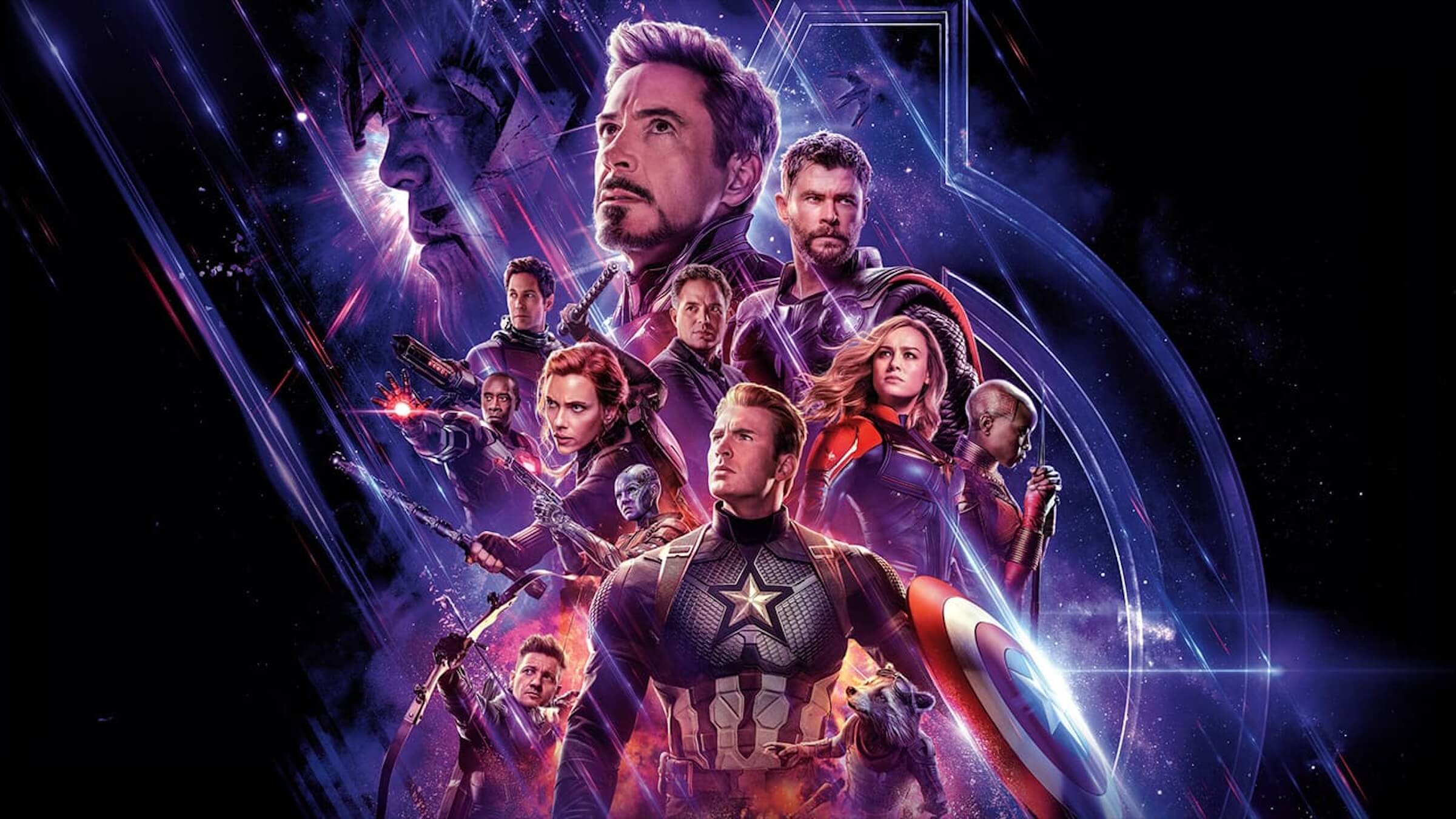
In a new series for The Script Lab, Martin Keady, our resident cinema historian, examines The Greatest Screenplays—those that every screenwriter should read and learn from. He continues with Avengers: Endgame, the conclusion of the Avengers series and probably the greatest superhero film ever written.
Some would argue that Avengers: Endgame (2019) is not a great screenplay, and is instead just a straightforward wrapping-up of a superhero saga. However, that is to ignore not only the staggering commercial success of the Avengers series but, in particular, the considerable artistic success of its final installment.
In satisfactorily concluding or “landing” such a complex and inter-connected series of films, the screenplay for Avengers: Endgame is a spectacular example of truly popular cinematic storytelling.
It is fitting that a film about a team of superheroes should have been written by a screenwriting team, namely Christopher Markus and Stephen McFeely. Although they may not quite rank among the finest screenwriting teams ever, they certainly rank among the finest screenwriting teams of the 21st century so far.
It is also fitting that even such a celebrated and commercially successful screenwriting partnership should have had the type of relatively modest beginning that most screenwriters can identify with.
Markus and McFeely met in a postgraduate creative writing program at the University of California, Davis in 1994, long before the 21st-century boom in films based on comic books. Initially, they tried writing prose together but eventually progressed to screenwriting, principally because they regarded it as being more commercially feasible.
After completing their Master’s Degrees in 1996, Markus and McFeely moved from the small city of Davis to the megalopolis of Los Angeles and, like most screenwriters, began their professional careers by working in entry-level positions in the film industry, such as receptionists.
However, their co-screenwriting was sufficiently impressive to attract the interest of an agent. After writing several unproduced scripts, they were commissioned by HBO Films to write a biopic of Peter Sellers, the British comic behemoth whose career encompassed everything from radio, especially the legendary The Goon Show, to Ealing comedies, like The Ladykillers (1955), to several Hollywood classics, including Dr. Strangelove Or: How I Learned to Stop Worrying and Love the Bomb (1964), The Pink Panther (1963) and Being There (1979).
The success of their Sellers biopic secured Markus and McFeely the opportunity to write the first installments of The Chronicles of Narnia series of films, which was developed after the phenomenal success of The Lord of the Rings trilogy in the early noughties. Even though the Narnia films ultimately failed to match either the commercial or artistic success of The Lord of the Rings, they did pave the way for Markus and McFeely to contribute to—indeed, conclude—a cinematic saga that would eventually match, if not eclipse, the phenomenal popularity of Peter Jackson’s Tolkien films.
Read More: Master Every Genre: The Screenwriter’s Essential Film Guide to Genre Films
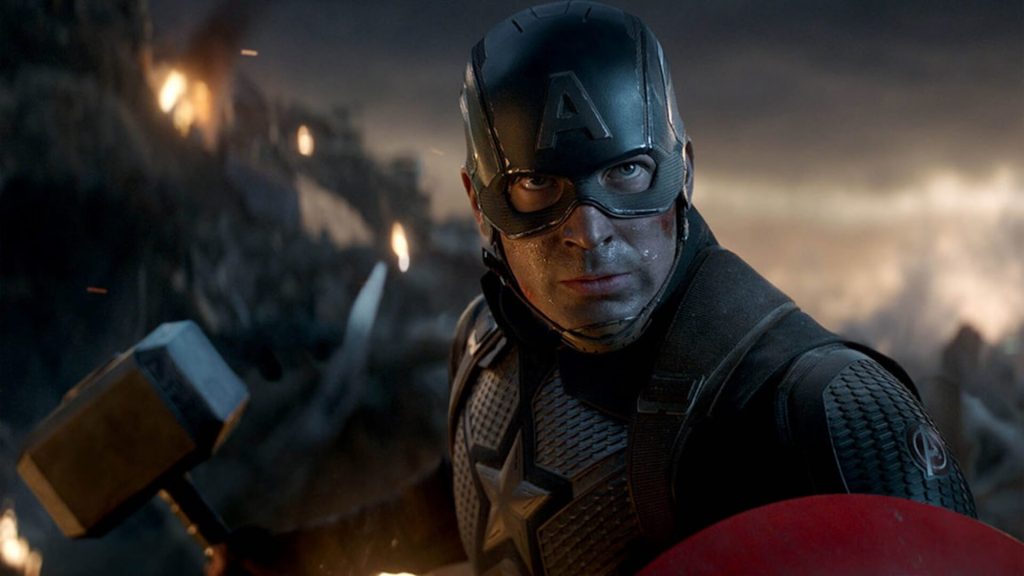
‘Avengers: Endgame’ (2019)
Markus and McFeely did not write all the Avengers films. In fact, it would probably have been impossible for any writer, or even any pair of writers, to pen the scripts for all 22 of the inter-connected films that constituted the Marvel Cinematic Universe. They did not even write all four installments of the Avengers series, each of which brought together all the disparate superheroes (Iron Man, Hulk, etc.) in a single film just as Special Agent Nick Fury had brought the Avengers together as one team of superheroes in the first place.
Markus and McFeely began writing Avengers films by writing the first three Captain America films, the last two of which—Captain America: The Winter Soldier (2014) and Captain America: Civil War (2016)—were Avengers films in all but name, as they introduced the titular “Cap” to the other Avengers and saw them all working together (or against each other in Civil War).
By the time they came to write the last two Avengers films, Infinity War (2018) and Endgame, Markus and McFeely were as completely immersed in the MCU as anyone other than Kevin Feige, the President of Marvel Studios, who was the closest equivalent to Stan Lee, the original editor of Marvel Comics in the early 1960s, as the Avengers made the transition from comic-strip heroes to big-screen icons.
Infinity War and Endgame can almost be regarded as the two concluding parts of the Avengers story, and it is surely significant that Markus and McFeely wrote them both because they dovetail perfectly.
Infinity War saw the Avengers’ arch-nemesis, Thanos, defeat the Avengers and succeed in destroying half of all life in the universe (in a crazed attempt to try and control population growth), before Endgame saw the Avengers regroup, in order to undo the limitless devastation Thanos had wrought.
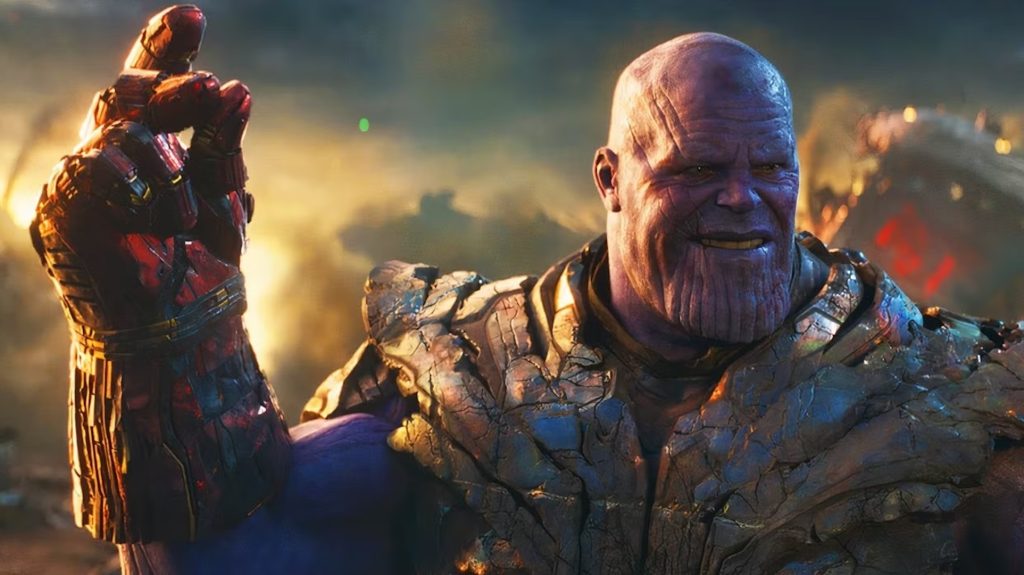
‘Avengers: Endgame’ (2019)
Endgame is such a long screenplay (at nearly 150 pages) and so complex (as it attempts to wrap up so many different but interrelated stories) that it can be difficult to summarise why it was so artistically successful. (It is easy to summarise the film’s commercial success in that it was for a time the highest-grossing movie of all time.)
However, it can perhaps be summed up by “The Five S’s.”
In some respects, there is little that any other screenwriter can learn directly from Endgame, in that no other screenwriter (or pair of screenwriters) is ever likely to have to try and replicate its sheer scale and complexity.
Having to bring together 22 different films, including the three previous Avengers installments, and an almost countless number of characters in one concluding episode is not something that any screenwriter is likely to be tasked with in the near future.
Nevertheless, there is a key point of similarity between Endgame and every other successful screenplay ever written, in that every successful screenplay, whether it is about an army of superheroes or just one apparently ordinary non-superhero, ultimately has to bring together all of its myriad elements: plot, dialogue, characterization, theme, etc. And any screenwriter, regardless of the particular genre they write in, can learn much about how to do that from Endgame, particularly its extraordinary ending.
Ironically for such a state-of-the-cinematic-art film as Endgame, its ending bears comparison with some of the oldest plays ever written, namely those of the Ancient Greeks. Just as so many Ancient Greek plays were neatly wrapped up by the arrival of a deus ex machina (literally a “god machine” or metaphorically a plot device that allows a seemingly unsolvable problem to be unexpectedly solved), Endgame concludes with what might be called a “superhero ex machina,” whereby all of the different superheroes that have been part of the MCU and therefore an opponent of Thanos come to the rescue of the seemingly defeated Avengers.
Cinematically, it is the just-in-time arrival of the cavalry that allows the Avengers to regroup and finally overcome Thanos. However, as with so much of the MCU, it is striking how different this 21st-century “super-cavalry” is from the traditional Western cavalry, with superheroes of all shapes, sizes, genders, and ethnicities, from the mythical African kingdom of Wakanda to the farthest reaches of outer space, somehow uniting under the auspices of the supernatural Dr. Strange to save the beleaguered Avengers.
It may seem fanciful to invoke both Ancient Greek Drama and Classic Westerns in writing about the ending of Avengers: Endgame, but it is also appropriate. Unconsciously or otherwise, Markus and McFeely drew directly on such classic, indeed ages-old storytelling archetypes to help them conclude their own epic saga and in purely narrative terms it is a remarkable achievement.
Read More: Is ‘The English’ The Best Western Ever Made?
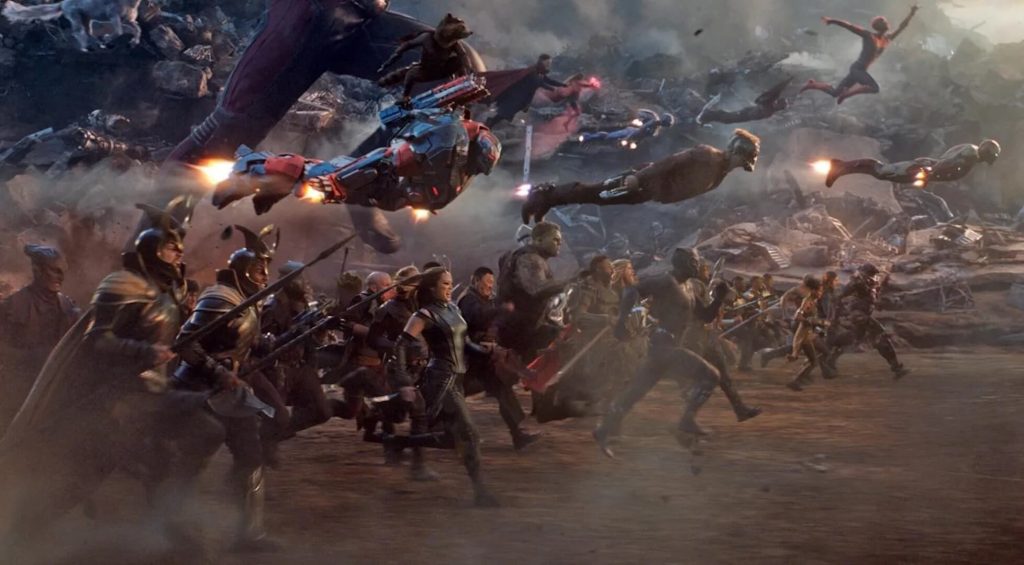
‘Avengers: Endgame’ (2019)
Screenwriters are often asked, “What are the stakes?”—meaning, “What is at stake for the character in your story?” Similarly, they are often instructed to “up the stakes,” meaning that they should rewrite their story to make it more obvious why it matters.
Well, with Endgame, arguably, the stakes could not be any higher.
That is because Thanos threatens the whole universe—not just Earth, or even the Solar System it is part of, but the whole darn universe. And yet what is really clever, if not downright cunning, about “The Thanos Plan” is that it is a subtle variation on the idea of obliterating the whole universe. Rather than destroying everything and everyone, Thanos only plans to wipe out half of the universe’s population, supposedly to preserve the other half.
Having suffered a personal catastrophe of his own that resulted in the loss of his family, Thanos becomes a kind of “Mad Malthus” character who is convinced that the universe cannot support its existing population and must somehow be corrected to allow just half of that population to survive.
As the Avengers saga develops, particularly in the four key Avengers installments, the initially murky motivation of Thanos gradually becomes clearer, until it is finally made explicit in Infinity War.
At the end of Infinity War, “The Thanos Plan” has succeeded. Thanos has gathered together all six “Infinity Stones,” the collection of which is the ultimate McGuffin of the Avengers films and indeed the entire MCU, and proceeds to use them to wipe out half of all life in the universe with a single snap of his fingers. Thus, the scene is set perfectly for Endgame, in which the surviving half of the universe, including the remaining Avengers, must somehow find a way to undo what Thanos has done.
Infinity War and Endgame are also linked in that the former is an exploration of the furthest reaches of space, with the concluding battle against Thanos taking place far from Earth, whereas the latter is an exploration of time, specifically the possibility of time travel. And so comes the “Time Heist” that forms the bulk of Endgame.
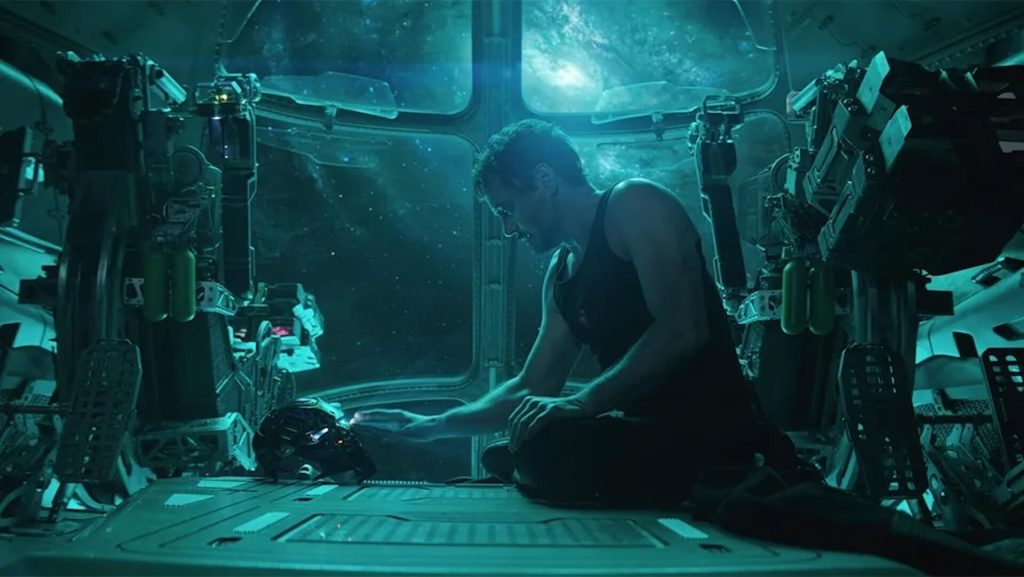
‘Avengers: Endgame’ (2019)
There are many differences between Marvel Comics (which provides the basis for the MCU) and DC, or Detective Comics, the home of Superman and Batman, which initially was the more successful and lauded of the two great US comic companies. Perhaps the single most important difference is that Marvel and its superheroes always seemed to have a much better sense of humor than DC and its superheroes. Whereas Superman and Batman often appeared at best pompous and at worst completely humorless, Iron Man, Captain America, and the other main Marvel characters always seemed to be much lighter in touch, in every sense.
Thankfully, that sense of humor, not least about the sheer absurdity of anyone human actually being worthy of the title “superhero,” was retained in Marvel’s great transition from comic strip to film. One of the greatest strengths of Markus’ and McFeely’s screenwriting, especially in Endgame, is that it is awash with humor, even at the seemingly grimmest of moments.
It is there when Steve Rogers/Captain America attends a survivors group for those who have been spared by “The Blip” (the name given to the disappearance of half of humanity) and it is even more obviously there when Captain America ends up fighting with himself, or an earlier version of himself, during one of the “Time Heists.”
But above all, it is there in the very notion and execution of the Time Heists themselves, whereby Markus and McFeely first briefly try to explain the supposed science behind time travel but then have the characters resort to quoting from earlier time-travel movies, such as Back To The Future (1985), to “explain” it more easily to the non-PhDs among the audience.
And yet that omnipresent humor is perfectly balanced with a genuine sense of loss, or, more precisely, sacrifice, which is probably the single biggest saving grace of Avengers Assemble (2013 – 2019) and arguably the single biggest reason for its success, both artistically and commercially.
For all that it is a film about the supposed loss of half of all life in the universe, ultimately it comes down to the death of just one main character, Iron Man, with whom the whole MCU had begun with the first Iron Man film in 2008.
Iron Man, as played by Robert Downey Jr, survived The Blip, unlike so many, notably Spider-Man who he had effectively adopted as the son he never had. When he finally makes it back to Earth and resumes his relationship with his assistant Pepper Potts, played by Gwyneth Paltrow, and they have a daughter together. He is naturally reluctant to risk what he has to try and save those who have already died.
Yet narrative necessity and his own sense of duty compel Iron Man first to make the Time Heist happen and then to surrender his own life to ensure that Thanos is defeated. And it is the genuine sense of loss that his death creates that gives Endgame real gravitas.
For all the talk about unimaginable loss and the destruction of entire planets, it is the death of the original Avenger that makes Endgame more than just a simple “comic-book movie.” In its meditation upon the death of just one individual, it conveys a sense of loss, even grief, that gives the entire film some profound seriousness.
It is the fact that Endgame encompasses true sacrifice that allows it to encompass true greatness.
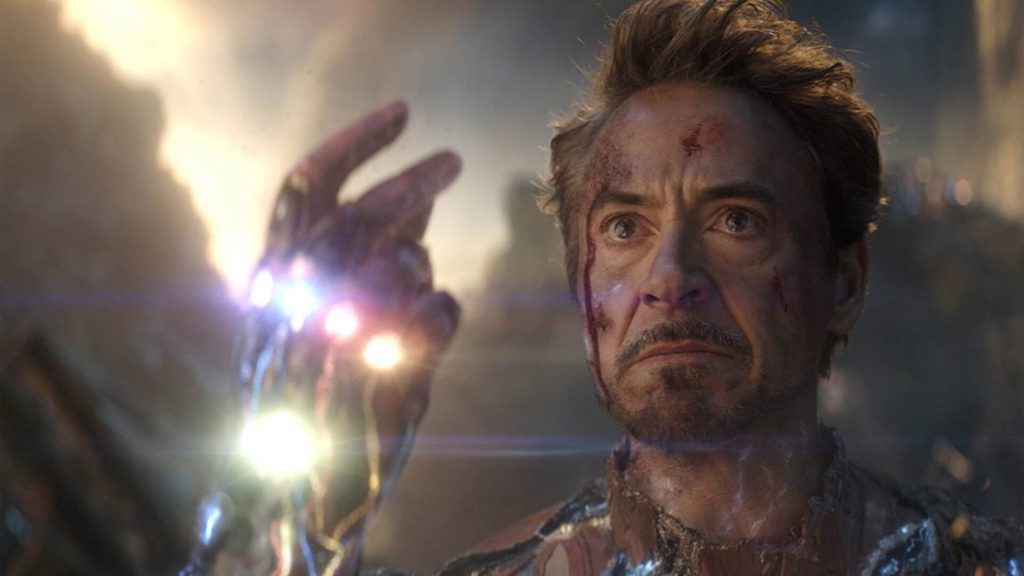
‘Avengers: Endgame’ (2019)
Endgame was undoubtedly a good ending, or “landing” as it is so often called now, to the Avengers series of films and the entire MCU. Indeed, it was arguably too good an ending, starting with that fabulous title, which some suspect Markus and McFeely simply lifted from Samuel Beckett’s play of the same name—Endgame.
Endgame truly was the endgame or end-point for the Avengers series of films and the MCU as a whole.
The difficulty for Marvel, and its new owner Disney, is that Endgame may just have been the endgame for superhero films, full-stop. It is now over five years since Endgame was released and nothing that Marvel/Disney have released since has come close to matching, let alone exceeding, it.
The MCU has effectively become the MTU—the Marvel Television Universe—with more emphasis on all the spin-off series and origin stories than any of the new stand-alone films or film series that were supposed to follow The Avengers (2012).
The release of the final Avengers film was followed within a year by a “super-villain” that not even the Avengers could defeat, namely COVID-19. The pandemic accelerated the already existing trend of declining cinema audiences, especially in the age of streaming, and, notwithstanding the dual success of “Barbenheimer” in 2023, there have been few films since to match its almost universal appeal.
Consequently, Endgame might just end up being regarded not only as the greatest superhero film ever made but possibly the last great cinematic series that was first seen on a big screen.